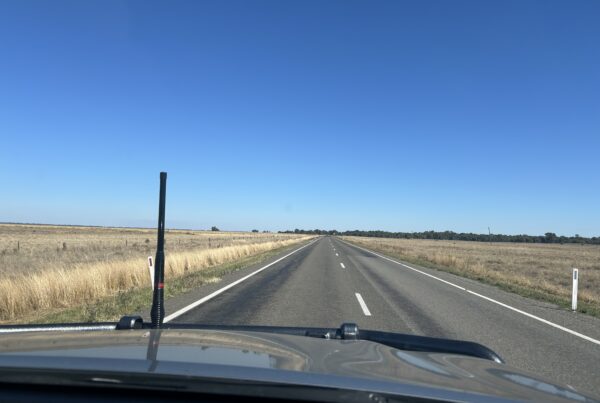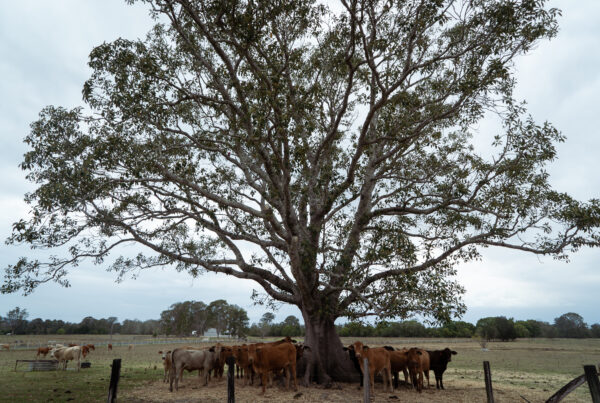2nd of May 2024
Farmers for Climate Action (FCA) appreciates the opportunity to provide a submission on the Electricity and Energy Net Zero Sector Plan Discussion Paper. We welcome the development of a pathway for the energy sector to contribute to Australia’s 2050 emissions reduction targets while ensuring reliable, secure and affordable energy supply.
Key Points
- FCA fully supports the development of renewable energy across Australia, including the necessary additional transmission infrastructure, as a way to decarbonise the economy and grow energy independence.
- Farmers support decarbonisation and electrification and many are already investing in renewables on their farms as an opportunity to improve their own energy reliability and cost.
- However, consultation with communities impacted by larger renewables and transmission infrastructure projects has been substandard, resulting in significant community disruption and undermining community support for these projects.
- Building and maintaining social licence for these infrastructure projects in farming communities is essential for success.
- To build social licence for energy projects, FCA supports:
- Urgent implementation of the nine recommendations of the Australian Energy Infrastructure Commissioner 2023 Review into Community Engagement, in particular recommendations about community benefit sharing and better selection and planning for development sites;
- the development of a National Energy Equity Strategy to ensure that regional Australia has access to reliable, clean and cheap electricity (noting these communities often cannot access the power from clean energy projects); and
- the development of Local Energy Knowledge Hubs to provide trusted information on transmission and renewable energy to communities in regional areas.
- Governments must work together as a matter of priority to address and resolve the existing regulatory and legal barriers to farmer participation in new energy markets.
- Increased investment in research, development, and commercialisation (RD&C) is required to overcome current technology gaps preventing decarbonisation in some sectors, such as developing alternative fuels for hard-to-electrify systems, such asheavy-duty farm vehicles and aviation.
- Alternative fuels such as biofuels or hydrogen should be investigated as an option for heavy farm equipment that cannot currently be electrified.
- Investment in the rural renewable’s workforce is required to support this RD&C as well as roll out of new technologies.
About Farmers for Climate Action
Representing over 8,200 Australian farmers and backed by 45,000 supporters nationwide, Farmers for Climate Action is a movement of farmers, agricultural leaders and rural Australians working to influence Australia to adopt strong climate policies by growing the number of farmers, farming communities and elected representatives championing ambitious action. FCA recognises the importance of safeguarding the ability of farmers to produce food and fibre for Australia and the world while seeking the deep emissions reductions we need to meet climate targets.
FCA submissions are informed by regular consultations with farmer members and supporters, including a public survey in November 2023 which was completed by 500+ farmers and 150+ members of the agricultural value chain and sought perspectives on a path to net zero. The survey sample is representative of Australian agriculture according to the latest Australian Bureau of Statistics agricultural commodities data. Detailed findings, case studies and a description of the survey methodology are included in the attached report.
The results of our most recent survey of clearly demonstrate that Australian farming communities are already dealing with the impacts of climate change:
- 92% of farmers who responded to the survey have experienced changes in seasonal conditions and climate-related on-farm impacts in the past three years.
- 89% described these impacts as ‘very unusual’ or ‘somewhat unusual’.
- 55% of farmers identified climate change as the greatest threat to the future of farming in Australia.
Insights from another FCA survey showed Insights on the Uptake of On-Farm Renewables, demonstrating that farmers are taking action to reduce their emissions, and investing in renewable energy solutions:
- 75% of farmers already generate renewable energy or host renewable infrastructure on-farm.
- 95% of farmers, who do not already have renewable energy infrastructure, reported they would consider hosting or generating with the right support.
- Over half the farmers who responded indicated they would be open to hosting large scale renewable energy or storage infrastructure on their farm.
These findings correlate with other industry sources that show that farmers strongly support renewables, including a 2023 Dairy Australia survey which found that 89% of farmers had installed renewable energy or energy efficiency infrastructure on farm.
FCA’s recent reports Farming Forever and Farm Powered, which were also informed by extensive consultation with farmers and agriculture industry stakeholders, also provide data and evidence to support FCA’s positions as outlined in the following sections.
Social licence is key to success
FCA fully supports the need to shift to renewable energy generation and appreciates that considerable transmission infrastructure is necessary to transport energy along a
decentralised grid.
Around 55% of Australia’s land mass is managed for agriculture, placing farmers in the unique position of being able to host commercial and domestic scale renewable energy projects alongside their existing operation. Without farmer support, it will be difficult to complete projects essential to decarbonising our electricity network.
To date, regional generation and transmission projects have been hampered by a range of planning, policy, and consultation issues, resulting in frustration and a severe erosion of confidence and social licence for renewables and transmission projects in farming communities. To improve social licence, FCA supports the nine recommendations from the recent Australian Energy Infrastructure Commissioner 2023 Review into Community Engagement, in particular those around community benefit sharing and better selection of development sites by network need and local suitability.
Community Benefit Sharing
There are a broad range of options to enable Community Benefit Sharing. These can and should include financial payments to individual property owners or into a substantial community fund. Additional inclusions to the suite of community benefit sharing measures that would improve social license would be upgrading local infrastructure to improve energy reliability and/or cost, and improvements to essential telecommunications infrastructure to improve connectivity in regional communities. Communities will have different needs and wants, and a key part of developing a program to share benefits is asking the community, ‘what are the gaps and key issues for them?’
Large scale transmission infrastructure in rural areas generally does not improve local energy reliability or cost. For example, there are still many farms accessing the electricity grid through single wire earth return (SWER) lines, which are unreliable and limit on-farm equipment upgrades, for example where 3-phase power is required. Farmers on SWER lines are also unable to feed excess renewable energy back into the grid. Including a program to upgrade these lines as part of broader transmission projects can provide significant cost savings and opportunities for farmers and help build social licence for local transmission projects.
Many new energy technologies require connection to a cellular network and/or satellite, but for many places in regional and rural Australia this connection is poor or inaccessible. These challenges of digital connection must be urgently addressed and could form part of a community benefit sharing plan.
Certainty in planning and zoning for renewables projects
The construction of renewable energy and transmission infrastructure can significantly impact farm business, including through the imposition of easements, development bans and no-fly zones. Adequately planning renewable energy and transmission infrastructure is required to ensure that prime agricultural land which provides food and fibre is not impeded by the shift in Australia’s energy system.
To aid in improving planning, FCA supports the establishment of regional energy zones (REZ’s). FCA’s report Farm Powered, found that mid-scale community and farm informal REZ’s would provide opportunities for regional Australia to decarbonise their energy grid, and diversify investment.
National Energy Equity
Ensuring that the shift to renewable energy is equitable for all communities in Australia is currently not receiving sufficient attention, and a key component of this is ensuring that there is an equity of opportunity to participate. Metropolitan areas currently have an advantage over rural areas because they have the ability to supply excess generation from household solar systems directly to the grid. In regional areas, households are often excluded from participating due to prohibitively expensive infrastructure upgrades required to their electricity connections in order to connect renewables. FCA supports the development of a National Energy Equity Strategy to help ensure that upgrades to generation and energy systems in Australia improve equity and deliver benefits for all Australians.
Knowledge Hubs
The development of Local Energy Knowledge Hubs would provide a trusted local source of information to communities on the energy shift and dispel misinformation which exists around renewable energy generation and transmission. This type of extension work is necessary to ensure community understanding and social licence. These hubs could be developed in key areas that host large-scale renewables such as the Illawarra, Hunter Central Coast, New England, Central Queensland, the Latrobe Valley and Kwinana.
Legal and Regulatory Barriers
Farmers currently face a range of legal and regulatory barriers which prevent them from fully participating in new energy markets and maximising the value of their investment in renewables. In some cases, these issues have not yet been resolved because the solution would require different jurisdictions to work together, or because there is confusion as to which jurisdiction has authority. It is urgently required that governments work together to address these barriers.
Two common examples include:
- Export limits – the amount of renewable energy that farmers can supply to the grid is currently capped, which impacts potential revenue opportunities and the payback period of a solar system. Removing this cap could help incentivise more energy generation on farm.
- Title issues – farm businesses often operate across two or more property titles, and in some regions, legislation currently prevents farmers from transferring energy generated on one part of the property to other areas which are on a different property title. For example, if a farm has solar on a house roof on one title, that electricity cannot be used in a farm shed on another title, even if the properties are side by side. Removing this barrier would help improve the efficiency of these systems on farm.
Many of these legal and regulatory issues have already been identified through community consultation processes, and resolution remains a matter of resourcing and political will. FCA emphasises that the shift to clean energy requires governments to allocate resources to address these barriers as a priority.
Mobilising Investment for Research, Development and Commercialisation
Technology gaps are delaying decarbonisation of energy in some sectors, including heavy equipment used in farming and aviation. Overcoming these issues will require significant investment in not just research and development, but also commercialisation. It’s currently very difficult for entrepreneurs to secure funding for new technology development, whether that is through government funding or venture capital. Providing better avenues and opportunities to access this funding would help to bring new technologies to market sooner and speed up the decarbonisation of energy systems.
One such technology gap is for heavy machinery, including farm vehicles, which are fuelled by diesel and cannot currently be electrified. FCA supports further RD&C to investigate alternative fuels such as for these vehicles. It would be preferable to develop these new fuels using waste materials, such as agricultural waste. This would support the Australian Government’s transition to a circular economy. Given these technology limitations and the lack of fuel alternatives, FCA supports the retention of the diesel fuel rebate for agriculture.
Building Australia’s clean energy workforce
Regional and rural areas in Australia already face significant shortages of skilled tradespeople, and anecdotal evidence suggests that this skills shortage is even more pronounced when looking for tradespeople to install renewables and energy efficiency technologies. For example, electricians in regional areas may not have had the time or opportunity to undertake the training required to properly and safely install and maintain solar systems.
In order to decarbonise our energy sector, we will need to roll out renewables at scale across regional Australia, and regional Australia requires a skilled workforce to ensure this is successful.
Conclusion
Regional communities can play a key role in decarbonising our energy and food systems by shifting to renewables, including continuing to host large scale renewable energy generation and transmission infrastructure through their communities and properties. However, many regional communities are currently excluded from decision making about how this shift will occur and how it will impact them. To reverse social licence loss within these communities we must ensure that effective and efficient community consultation occurs, that communities that are impacted by projects see some benefit from them, such as upgrades to their local infrastructure and energy opportunities, and that there is certainty around planning for infrastructure. We also need investment in the regional energy workforce, cooperation between different jurisdictions to resolve legal and legislative barriers to participation, and increased funding for research, development and commercialisation of new energy technologies. By doing all of these things we can help ensure success in Australia’s shift to renewable energy and the decarbonisation of our energy systems.
Farmers for Climate Action is keen to work with the department on achieving more equitable outcomes for farmers and regional communities and supporting Australia’s shift to clean energy. Please do not hesitate to contact either myself or Megan Hill, General Manager of Policy and Advocacy, on the number below should you wish to further discuss this submission.
Yours sincerely,
Natalie Collard
Email: [email protected]
Phone: 1800 491 633
Web: farmersforclimateaction.org.au






